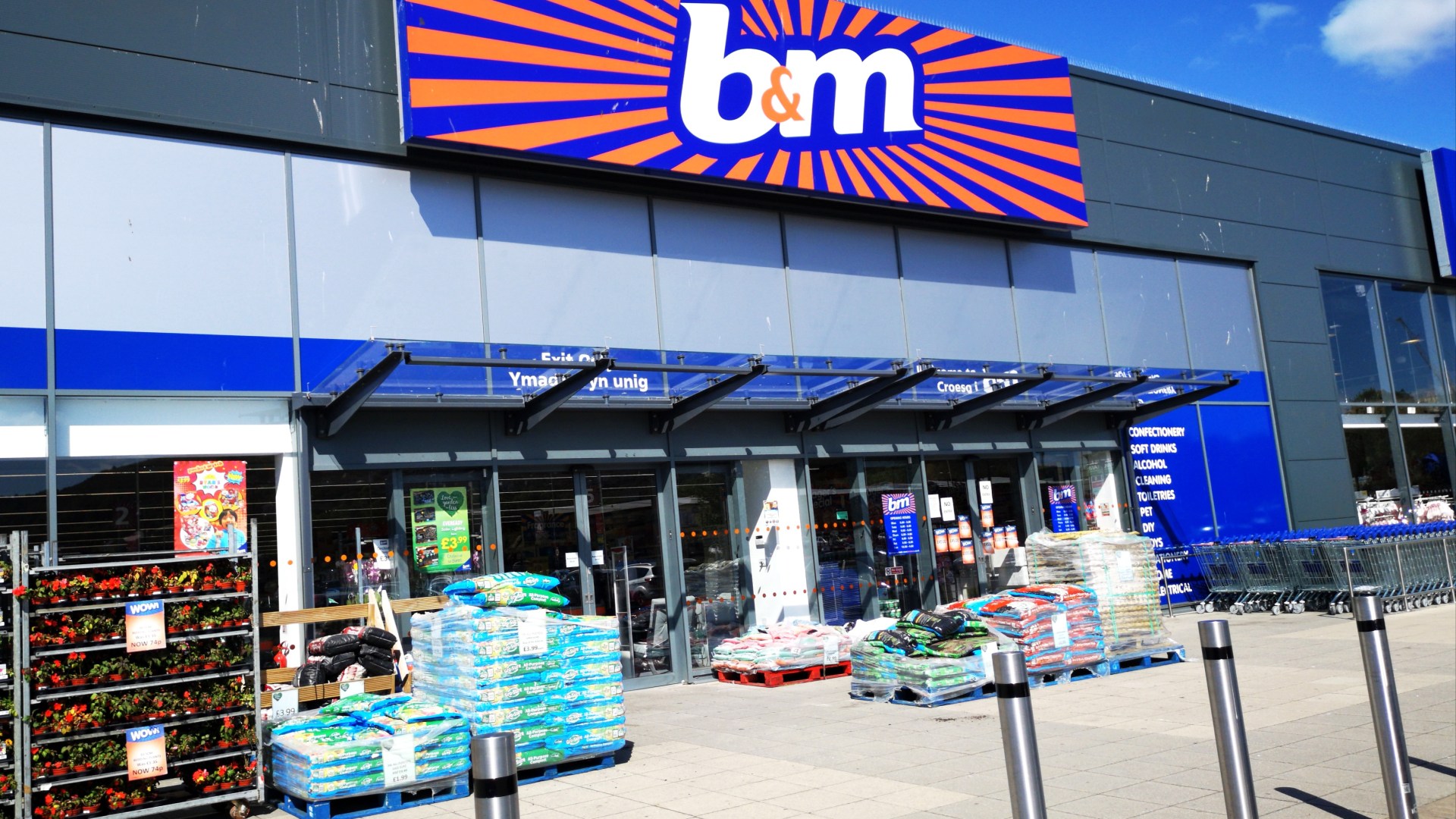Money
Everything you need to know about disabled persons trusts


The term ‘disabled persons trust’ is frequently used to describe any trust where a beneficiary is deemed vulnerable or disabled. It is not a specific type of trust.
A disabled persons trust can be any discretionary, interest-in-possession or absolute trust. The key is whether the beneficiary’s vulnerability qualifies the trust for income and capital gains tax (CGT) relief or if their disability qualifies the trust for special inheritance tax (IHT) treatment.
So, who qualifies as a vulnerable or disabled beneficiary?
Vulnerable only:
- A child under 18 where at least one parent has died – known as a ‘relevant minor’
Vulnerable and disabled:
- A person with a mental health condition covered by the Mental Health Act 1983
- A disabled person who is eligiblefor any of the following benefits (even if they’re not receiving them): adult disability payment; armed forces independence payment; attendance allowance; child disability payment; constant attendance allowance; disability living allowance (for adults or children); industrial injuries disablement benefit; personal independence payment.
Income tax and CGT relief
Trusts with a vulnerable beneficiary can make a ‘vulnerable beneficiary election’ with HM Revenue & Customs, allowing them to qualify for income tax and CGT relief.
Where the trust has a liability to income or CGT, they may be eligible for a deduction. This is calculated as follows:
- Trustees calculate the trust’s tax liability – using the trust rates of tax and assuming no relief
- Trustees then calculate the tax liability the vulnerable person would have on the same income/capital gains if taxed at their marginal rate.
- The trustees claim the difference between these two figures as a deduction on their tax liability.
The relief only applies if it is the trust which is liable to the tax. For example, a discretionary trust in receipt of interest and dividends. Absolute trusts place the income tax and capital gains liability on the beneficiary directly, so the relief is not necessary.
Higher CGT exemption
Trusts eligible for the vulnerable beneficiary election will have a higher CGT annual exempt amount. This is currently £3,000 (2024/25, usually £1,500), though this allowance may be reduced where the settlor has created multiple trusts.
Trusts which hold investment bonds
Bonds are taxed under chargeable event rules, chargeable gains are tax as income. Under these rules, the settlor of a discretionary or interest in possession trust is liable to income tax on gains arising during their lifetime or tax year of their death. The trustees only have a liability in the following tax years. Even then, the bond can be assigned directly to a beneficiary to be taxed at their marginal rate. Therefore, it may not be necessary for the trustees to make the vulnerable beneficiary election.
If the trust has multiple beneficiaries
If there are beneficiaries who do not qualify as vulnerable, the trustees must segregate assets held for them. The relief only applies for the portion of the trust fund held for the vulnerable beneficiary.
If there is more than one vulnerable beneficiary, the trustees must make an election for each.
Claiming the relief
Trustees must first submit a vulnerable beneficiary election form (VPE1) to HMRC. If there is more than one vulnerable beneficiary, one form must be submitted for each.
Trustees claim the income tax and CGT relief when submitting their annual self-assessment (SA900). Self-assessment must be completed by 31 January following the end of the tax year.
The relief ends on the death of the vulnerable beneficiary, or if they cease to qualify.
Calculating the relief can be complicated, so trustees should consider engaging an accountant. Example calculations are also available from HMRC.
Inheritance tax
A trust may receive special IHT treatment where one of the following applies:
- One or more beneficiary is disabled or has a condition which is expected to make them disabled.
- The trust is a ‘bereaved minors’ trust. This is where one or more of the beneficiary’s parents has died creating a trust in their will (or via the rules of intestacy) for their minor child.
The following special treatment is applied:
- A gift to a disabled persons trust is a potentially exempt transfer regardless of the type of trust used. This means there will be no 20% entry charge for exceeding the nil rate band.
- Trusts will not be subject to the 10-yearly periodic or exit charges.
Restrictions on the trust fund
To qualify, there are restrictions which must be followed:
- For trusts created before 8 April 2013, at least half of the payments from the trust must go to the disabled person during their lifetime.
- For trusts created on or after 8 April 2013, all payments must go to the disabled person. However, up to £3,000 per year (or 3% of the trust’s value, if lower) can be paid to other beneficiaries.
- Trusts of bereaved minors (trusts created by the will of the child’s parent) must pay all assets to the beneficiary on attaining age 18 or before.
While it is possible to use an ‘off the shelf’ draft trust deed, a settlor of a disabled persons trust may choose instead to instruct a legal adviser to draft a bespoke trust document which enforces these restrictions on the trustees.
On death of the beneficiary
Any part of the trust fund held for a disabled beneficiary is treated as part of their estate for the purposes of calculating their IHT liability.
Claiming the special treatment
There is no election or application required for the treatment to apply. However, trustees and settlors are advised to keep good records which can help them demonstrate that the special treatment applies if needed.
Means-tested benefits
A settlor looking to create a trust for a disabled or vulnerable person is likely to be keen not to disrupt any entitlement to means tested benefits. These are benefits where an individual’s capital and income are used to assess whether they are entitled to a benefit and how much they might receive.
Bare trust
Any assets held in a bare trust will be considered for any means-tested benefits the beneficiary claims. This is because the beneficiary has a vested right in the trust fund. There is one notable exception to this; capital and income are excluded from means testing if the trust settled with the award of a personal injury claim for the beneficiary of the trust. The trust must be settled within 12 months of the award.
Discretionary trust
Any assets held within a discretionary trust are not usually considered for means tested benefits as no beneficiary has a vested right in the trust fund. However, any capital or income paid to the beneficiary will be considered in the assessment.
In either case, the position is unchanged if a beneficiary qualifies as a vulnerable or disabled person.
Trust registration
Trusts for disabled beneficiaries or bereaved minors are exempted from registration during the lifetime of the disabled beneficiary. If the trust ceases to qualify for special treatment the trustees must register the trust within 90 days.
Disabled persons trusts:
| Income tax | Capital gains tax | Inheritance tax | Inclusion for means-tested benefits | |
| Bare trust | Beneficiary’s marginal rate | Beneficiary’s marginal rate |
– Beneficiary’s estate for IHT – No entry / periodic / exit charges |
The beneficiary’s share of trust capital and income are included |
|
Discretionary – not eligible for relief |
Rate applicable to trusts* | Rate applicable to trusts* |
– Not within beneficiary’s estate – Entry / periodic / exit charges apply |
Capital and income distributed to the beneficiary only |
|
Discretionary – eligible for relief |
Beneficiary’s marginal rate** | Beneficiary’s marginal rate** |
– Not within beneficiary’s estate – No entry / periodic / exit charges apply |
Capital and income distributed to the beneficiary only |
*Rate applicable to trusts: Income Tax 39.35% (dividend) 45% (all other income). 0% on all income if below £500. Capital Gains 20% annual exempt amount up to £1,500) 2024/25
**Assuming the trust fund is applied for the vulnerable beneficiary.
Rachael Griffin is a tax and financial planning expert at Quilter
Money
Supermarket chain with 2,500 UK sites is to close town centre store in DAYS as shoppers sob ‘it’s a huge loss’

SHOPPERS have been left devastated after a supermarket chain with 2,500 sites across the UK prepares to shut a beloved town centre store.
Locals have described the shock decision to shut the doors of the popular branch as “a huge loss” for the town centre.
The local Co-op store in the Meadows, Nottingham is set to finally pull down the shutters for the final time tomorrow.
The well-known shop was a mainstay in the Bridgeway Shopping Centre for over 50 years.
Co-op haven’t given a reason for the closure but said it was a “difficult decision”.
The store’s final day of trading will be Saturday, November 16.
A spokesperson for Co-op confirmed the closure saying: “Co-op regularly reviews its stores. In addition to opening new stores we sometimes, and only after careful consideration, have to take the difficult decision to close a store.
“With the expiry of the lease our store in the Bridgeway Centre will close.
“Colleagues, who have been informed, are being fully supported with every effort being taken to offer alternative positions in the area.
“We would like to thank the community for its support of this store.”
Local David Cooksy previously told how he was left “disappointed” when he heard the store was closing down.
David, 85, and his wife Heidi, 82, have been regular Co-op customers since the 50s in the Meadows.
He told the BBC: “It’s convenient. It’s a convenience store, that’s what it’s called and now it’s not going to be here.
“It’s always been here. I go back to the 50s in the Meadows and there’s always been a Co-op.”
Laney Neilson, 24, said the branch was a favourite for older locals including her grandparents due to its prime location in the town centre.
She said the closure has made many pensioners “quite upset” with the nearest store no longer being in walking distance.
The next closest Co-op stores for shoppers in the area are on Station Street and Trent Bridge in Nottingham or Trent Boulevard in West Bridgford.
Meadows resident Aparna Valsala, 33, added: “You see so many people come here in the morning – it’s a loss to the community.”
It comes after news that Central Co-op would be offloading almost 20 food stores in various locations across middle England.
However, in a boost for shoppers the same branches are being sold to two retailers and will reopen under their brand names.
Three of the food stores will reopen as B&M branches, while the remaining 16 are being sold to Samy Limited.
The independent convenience chain currently runs 32 Budgens, Spar, Londis and Premier stores across the UK.
Central Co-op said the 19 branches had been “financially unsustainable for some time”.
HIGH STREET CLOSURES
Several high-street retailers have been struggling to get by over the past few years.
The pandemic was a tough blow as many stores had to close during lockdown.
Since then energy costs have risen and more shoppers than ever are choosing to order online rather than head into stores.
This has left some remaining retailers grappling with budgets and having no choice but to close stores to cut costs.
For the most part, supermarkets have braved the storm as they provide essential items like food and drink.
But other retailers have been less fortunate The Body Shop is currently going through administration and announced plans to close half of its 198 stores.
Boots announced it would be closing 300 stores over the next year as part of plans to evolve its brand.
M&S has also confirmed store closure and openings with plans to ensure it has the best store locations.
Money
Major supermarket to sell tubs of Christmas chocolates including Celebrations and Quality Street for just £2 tomorrow

A MAJOR supermarket is set to sell tubs of Christmas chocolates for a shockingly low £2.
Morrisons is dropping the price of four of its tubs from November 15 until November 21.
However, shoppers can only pick up the cut price choccies if they are signed up to the retailer’s More Card scheme and spend a minimum of £45 in-store.
Savvy savers can only get a maximum of one of each tub too.
The tubs up for grabs include 550g-600g Quality Street, Cadbury Heroes, Celebrations and Roses.
The offer is running nationwide for just six days, with shoppers able to save 66% on the tubs.
All four tubs currently cost up to £6 for shoppers.
The new offer from Morrisons means it is offering the cheapest price for all four Christmas tubs out of the major supermarkets.
Aldi is the next cheapest option for 550g boxes of Celebrations, which is selling them for £4.49.
Meanwhile, Sainsbury’s is selling 550g tubs of Roses for £4.50 to Nectar Card customers – £2.50 more expensive than Morrisons.
The 550g tubs of Cadbury Heroes are two for £9 at Asda, or £4.50 individually, but that’s £2.50 more expensive than Morrisons.
Aldi has the 600g tubs of Quality Street in stock for £4.49 which is the least costly after Morrisons.
Morrisons is not the first supermarket chain to dramatically slash the price of its Christmas chocs in recent weeks.
For two days only last month, Asda dropped the cost of its Quality Street, Cadbury Heroes, Roses and Celebrations.
While Morrisons’ Christmas chocs deal is the best on the market at the minute, it’s always worth comparing prices to be sure.
You can use websites like Trolley, Price Spy and Price Runner which let you compare prices on thousands of products.
Terms and conditions for the £2 Christmas chocs deal
Consumer reporter Sam Walker talks you through the bargain deal.
- You have to spend £45 to get a tub for £2
- You must be signed up to Morrisons’ More Card loyalty scheme
- The promotion is live between November 15 and 21
- The purchase price of any tubs is excluded from the £45 minimum spend
- Certain products don’t count towards your £45 spend: Fuel, cash back, fireworks, lottery, online games and instant
tickets, tobacco, tobacco-related products (including vapes), prescription medicines and pharmacy services, infant milk or formula, carrier bags, gift vouchers, gift cards, mobile phone cards, mobile phone vouchers, E top-ups, bonus stamps, postage stamps, saver stamps, photo processing, car park tickets, online delivery charges, Dry Cleaning, and vending machines - You must spend the £45 in-store and the offer is not available online or on spends in Morrisons cafes, Daily stores or petrol stations
A quick search with the Google Shopping/Product tab can bring up what some retailers are selling items for too.
It’s worth going direct to discounter’s websites like B&M and Home Bargains too as they often have cheap chocs on sale.
How does the Morrisons More Card work?
The Morrisons More Card is free to sign up to as an app that’s downloadable from the Apple App Store and Google Play.
You can also get a physical card which you can add to your wallet or purse.
It works like the Clubcard or Nectar Card in that you can earn points on purchases. You get one point for every £1 spent in-store or online.
Once you’ve got to 5,000 points you can either keep saving them or convert them into a voucher worth £5, known as a Fiver.
If you don’t have the app, you can get your Fiver printed in-store.
As a loyalty card member, you can also get lower prices on selected products, known as More Card Prices.
You have to scan your app or physical card at the till and the discounts are applied.
How to save money on chocolate

We all love a bit of chocolate from now and then, but you don’t have to break the bank buying your favourite bar.
Consumer reporter Sam Walker reveals how to cut costs…
Go own brand – if you’re not too fussed about flavour and just want to supplant your chocolate cravings, you’ll save by going for the supermarket’s own brand bars.
Shop around – if you’ve spotted your favourite variety at the supermarket, make sure you check if it’s cheaper elsewhere.
Websites like Trolley.co.uk let you compare prices on products across all the major chains to see if you’re getting the best deal.
Look out for yellow stickers – supermarket staff put yellow, and sometimes orange and red, stickers on to products to show they’ve been reduced.
They usually do this if the product is coming to the end of its best-before date or the packaging is slightly damaged.
Buy bigger bars – most of the time, but not always, chocolate is cheaper per 100g the larger the bar.
So if you’ve got the appetite, and you were going to buy a hefty amount of chocolate anyway, you might as well go bigger.
Do you have a money problem that needs sorting? Get in touch by emailing money-sm@news.co.uk.
Plus, you can join our Sun Money Chats and Tips Facebook group to share your tips and stories
Money
Rare Cadbury chocolate bars branded ‘yummy’ by fans spotted on B&M shelves

A CADBURY chocolate bar which has been labelled as “yummy” has returned to B&M stores across the UK, to the delight of shoppers.
The retailer has recently been stocking the shelves full of different chocolate treats – including the classic Cherry Ripe from down under.
One eagle-eyed shopper got their hands on one at their local store before spreading the word on social media.
They took to the Facebook group Dansway Gifts and Bargains UK to let others know, writing: “Cadbury Cherry Ripe Bars BACK at B&M.”
One person commented: “Omg haven’t had them since I was last in Australia, thought it was great finding TimTams in Tesco’s but this is even better!!”
Another said: “Ohhh I have never seen these before love cherry chocolate.”
Someone else wrote: “Omg , love these , used to buy them everyday on way to school when I lived in Oz …”
Another person commented: “You can’t beat them best chocolate ever.”
One person added: “My guilty pleasure at the moment absolutely to die for.”
Cadbury’s Cherry Ripe is a popular chocolate bar in Australia which features rich dark chocolate, ripe juicy cherries and moist coconut.
The Sun has reached out to B&M to check the price of the chocolate bar.
You can also buy a pack of two Cherry Ripe on Amazon for £4.99.
The chocolate brand also has plenty of other exciting ranges which prop up shelves every once in a while.
Just last month Cadbury’s Coated Fruit & Nuts were spotted on B&M shelves.
The discounter often imports stock from Down Under to customer fanfare including Dairy Milk Raspberry bars.
These chocolates aren’t usually found in UK shops and so are especially appealing for shoppers – plus for Aussies, they offer a taste of home.
This year a Cadbury’s mint-flavoured twirl also appeared on shelves in B&M, which originally launched in Australia, and only £1 for four.
What other Cadbury’s chocolates are available?
There’s also loads of classic fan-favourites making a comeback in time for Christmas, such as the Dairy Milk Chocolate Puds.
For individual pud it costs 75p in Sainsbury’s and just 70p in Waitrose.
You can also buy bags of mini puds for £1.65 in Tesco, Sainsbury’s and Poundland.
And the rare 360g Dairy Milk mint crisp bar has returned to some shelves this year – selling cheapest in Asda for £4.
Other Cadbury Christmas bars which are available in supermarkets this year also include the Dairy Milk Classic Wonderland and Mini Snow Balls edition.
Remember to always compare prices when shopping so you know you’re paying the right amount for what you’re getting.
A great way to do this is via the comparison site Trolley which will show the prices for every store.
You can also visit the Cadbury website to browse all their latest products and launches.
It comes as B&M shoppers also went wild for a new twist on the Dream bar.
Meanwhile, chocolate lovers raved about a new type of M&M – the Candy Popcorn M&M Minis.
Nestle also added a new chocolate to its Quality Street “Favourites Golden Selection” pouch: the Toffee Penny.
How to save money on chocolate

We all love a bit of chocolate from now and then, but you don’t have to break the bank buying your favourite bar.
Consumer reporter Sam Walker reveals how to cut costs…
Go own brand – if you’re not too fussed about flavour and just want to supplant your chocolate cravings, you’ll save by going for the supermarket’s own brand bars.
Shop around – if you’ve spotted your favourite variety at the supermarket, make sure you check if it’s cheaper elsewhere.
Websites like Trolley.co.uk let you compare prices on products across all the major chains to see if you’re getting the best deal.
Look out for yellow stickers – supermarket staff put yellow, and sometimes orange and red, stickers on to products to show they’ve been reduced.
They usually do this if the product is coming to the end of its best-before date or the packaging is slightly damaged.
Buy bigger bars – most of the time, but not always, chocolate is cheaper per 100g the larger the bar.
So if you’ve got the appetite, and you were going to buy a hefty amount of chocolate anyway, you might as well go bigger.
Money
Rachel Reeves pools £1.3trillion of pension savings in bid to boost investment in Britain and rip up financial red tape

THE Chancellor last night attempted to win back the City with plans to create pension megafunds to boost investment in Britain and rip up financial red tape.
Just a fortnight after her Budget received a frosty reception, Rachel Reeves told businesses she was still “going for growth”.
Ms Reeves wants to create her “megafunds” by pooling £1.3trillion of pension savings held by 86 separate local government schemes.
She reckons this will create £80billion to invest in British businesses and infrastructure.
The Chancellor borrowed the idea from Canadian and Australian pension schemes, which bundle local government pension schemes together and invest their trillions of dollars in big assets with high growth and profit potential.
She hopes this will not only cut costs for pension schemes by reducing fees to advisers, but will also funnel greater investment into the country’s infrastructure — which is currently being snapped up by overseas pension funds.
READ MORE ON RACHEL REEVES
Canadian pension funds own swathes of British properties and utilities, and just this week bought the UK’s airport operator in a £1.5billion deal.
Reeves’ idea is not a new one, but pension reform on this scale has not been tackled before.
Andrew Bailey, Governor of the Bank of England, last night agreed that the UK pension system had been “too fragmented” to encourage “investment in the real economy”.
In his speech last night he said the UK’s economic potential growth rate had fallen from 2.6 per cent between 1990 to 2008 to just 0.7 per cent, partly because of low productivity.
Tom Selby, public policy director at AJ Bell, said the megafunds must not forget their purpose to deliver good returns for pensioners.
He said: “In the government’s increasingly desperate search for investment and growth, it is crucial savers and retirees are not forced to pay the price through sub-standard investment return.”
The Chancellor, who has said she wants to bring more stability and security to the financial system than the Conservatives, last night conceded it was time to take off the kid gloves.
She said that some of the rules and regulations brought in after the 2008 financial crisis to avoid another banking meltdown had “gone too far”.
Ms Reeves reckons some rules stifled investment.
She added: “The UK has been regulating for risk, not regulating for growth.”
Firms feel left out after raid
LAST night was a Square Mile schmoozefest that few Brits or businesses could relate to.
As Reeves spoke of growth under chandeliers in the Lord Mayor’s house, shops, pubs and restaurants counted the cost of her £25billion tax raid.
Retailers feel particularly sore for supporting Labour before the election to then be hit by National Insurance contributions. They also didn’t get business rates reforms.
Altus Group analysis shows raising taxes on top properties to level the playing field with online retailers actually hits nearly three times more retail, leisure and hospitality firms than online businesses.
Reeves has to renew her charm offensive with firms outside of the City.
Trench warfare for Burb
BURBERRY shares rose yesterday after its new boss outlined an urgent turnaround — and blamed his predecessor for several fashion faux pas.
Half-year results for the brand fell by a fifth to £1.1billion in the last six months while it has swung to a £53million loss.
Joshua Schulman, who took over as CEO in July, said it was due to “poor decision execution and a lack of focus on core business”.
He also pointed the finger at former CEO Jonathan Akeroyd’s decision to hike handbag prices, when Burberry did not have the same clout as leather goods giants LVMH and Hermes.
He said it will focus on its heritage of trench coats, which Thomas Burberry started in 1856 with waterproofs.
The US boss, who previously led Michael Kors and Coach, dismissed predictions that he would turn Burberry into similarly more affordable and mass-market brands.
New coal mine ban
THE government has banned any future new coal mining schemes as part of its Clean Power push.
It comes after the UK’s last coal-fired power station Ratcliffe-on-Soar shut last month.
Coal mining powered Britain for 140 years but Labour wants to become reliant on green renewable energy by 2030.
Energy Minister Michael Shanks said: “The UK’s in prime position to lead the phasing out of coal power, the largest contributor to global emissions.”
Ices Gaza ‘gag’
ICE cream brand BEN & JERRY’S is suing its parent company Unilever, claiming it was silenced from speaking out in support of Palestinians.
It follows the former Unilever boss telling Ben & Jerry’s to stay out of geopolitics after it said it would stop supplying ice cream to the West Bank two years ago.
The Phish Food maker now says attempts to speak out in support of a ceasefire were blocked, breaching the terms of its settlement in 2022. Unilever said it “rejects the claims and will defend its case.”
INVESTMENT firm London Capital & Finance was a Ponzi scheme, the High Court ruled. It raised about £237million from 11,600 ordinary investors before going bust in 2019.
It depended entirely on new investors paying existing ones, a judge said.
WHS shops fly
WH SMITH yesterday revealed it now makes five times as much profit from its travel network shops than its high street stores after a rapid expansion in US airports.
The stationery retailer opened 100 new stores last year and is appealing to holidaymakers by selling more cosmetics, gadgets and food products.
It made £202million profit from its travel division compared to £39million from its high street stores in the past year. There are 90 more travel shops still to be opened.
Money
I won £40million lotto jackpot but moved into a CARAVAN – then my girlfriend broke up with me & all hell broke loose

A LUCKY lotto winner scooped a whopping £40million jackpot before opting for van life and getting dumped.
Dad-of-two Gareth Bull, 53, scored his winnings in January 2012 after picking up the life-changing ticket on a whim.
The former builder realised he’d won the multi-million pound jackpot the day after he’d bought the ticket and celebrated with his then wife Catherine.
Six-years on, he splurged some of his mammoth fortune on a bungalow in Mansfield, Nottinghamshire, only to have it knocked down and move into a caravan.
He said: “My friends said, ‘You’ve won £40,000,000 and moved into a caravan!’”
When the bungalow was half demolished in 2019 Gareth lived in the remaining rooms so he could stay on site and look after the tools.
Gareth added: “When the rest of the bungalow had to be knocked down, I moved into a caravan on the building site – much to the amusement of my friends.”
Thankfully for Gareth, the move was only temporary as he was in the process of building his dream 6000sq ft house.
“Once I got the green light to go ahead, I started digging and just didn’t stop.”
Despite being lucky in the lottery Gareth wasn’t as lucky in love, and split with his former wife in 2016, five years after their big win.
He then went on to have a whirlwind relationship with Tenerife bar manager Donna Desporte after they met on a stag do.
His wife was said to have spotted the pair in the background of a televised Anthony Joshua boxing match after they had split.
Gareth and his new lover had a star-studded nine-month romance after he used the pick up line “Google me” which ended being the title of Donna’s memoir.
Gareth then struck up a relationship with interior designer Victoria Melling, 48, around the same time he’d taken up caravan life.
After living in his trailer, Gareth was able to build his mega-mansion with the assistance of his new girlfriend.
The pair took to social media to share smitten snaps of couples holidays and luxury hotel stays.
Mum-of-one Victoria helped style the huge four-bedroom property during lockdown and stayed there frequently.
Despite looking loved-up online, and Victoria describing her lavish lover as a “knight in shining armour,” the couple called it quits after two years of dating.
The Furnish Your Interior shop designer told MailOnline: “I did design his house and I helped design his villa in Tenerife, but we are no longer together.”
The million-pound property boasts a wave-controlled swimming pool, sound-sytems, hot tubs, and a three personalised bars.
He also created an artificial lake, which originally designed to be a pond but increased to the size of two tennis courts.
The lucky punter added: “I called it ‘Lockdown Lake’, made a little sign with its name on it and invited anyone who needed to rehome their fish to bring them here.”
Ten lucky lotto winners
MATT MYLES
Matt Myles won £1,000,000 on April 8 2024. The factory worker immediately jumped on a plane to join a lads holiday he previously couldn’t afford. He now runs a property business and lives in Hereford with his wife and two kids.
JULIE JEFFERY
Julie Jeffery won £1,038,997 in June 2002. She kept working as a fire station after her win and only retired this year.
SYLVIA 0DOLANT-SMITH
Sylvia Odolant-Smith won £10,000 a month for 30 years. She decided to pay for cancer treatment for her beloved rescue cant Phangan that she couldn’t previously afford. The cat’s life was extended by eight months.
BRIAN SHARP
Brian Sharp won £2,003,705 in June 19 2010. The grandad-of-five purchased a five bedroom property five days after he won the jackpot. The former electrician worked for six weeks before his work could find a replacement.
BEN LOWTHER
Ben Lowther won £1,000,000 in October 2021. The video game developer won on a Friday and was made redundant the next Monday. He bought a house in Cambridge for his fiancée and three kids.
LESLEY HIGGINS
Lesley Higgins won £57,975,367 on July 10 2018. The 63-year-old port worker now owns her very own loch after purchasing a 850-acre estate near Perth with her husband Fred.
VIV MOSS
Viv Moss won £6,048,499 on October 3. She and her husband moved to Newquay in Cornwall and bought an apartment overlooking her favourite bay.
NATALI CUNLIFFE
Natalie Cunliffe won £1,000,000 in February 2016. After the scratch card win the event planner moved to Blackpool with her husband and two kids. Despite buying an Audi Q5 the couple still shops at Aldi.
ANNE CANAVAN
Anne Canavan won £1,054,000 on August 28 in 2015. She 63-year old grandma of five has written a children’s novel she hopes to publish and treated herself to a car.
RAY WRAGG
Ray Wragg won £7,649,520 in January 2000. The philanthropist gave £5.5million of his Lotto jackpot to family, friends, hospitals and good causes in Sheffield.
Money
Delivery firm backed by Martin Lewis goes bust owing almost £6million

A DELIVERY firm backed by the founder of MoneySavingExpert.com, Martin Lewis, has gone bust, leaving shareholders millions of pounds out of pocket.
Magway Limited, an Ocado-backed tech firm that aimed to revolutionise UK deliveries with a network of pipes, has entered voluntary liquidation.
Voluntary liquidation is when a company’s directors or shareholders decide to wind up and dissolve the company’s affairs.
Founded in 2017 by Rupert Cruise, an engineer involved in Elon Musk‘s Hyperloop project, and business expert Phill Davies, the UK startup Magway Limited aimed to revolutionise the freight delivery system.
Shareholders, including Martin Lewis, the company’s third-biggest investor, are set to lose over £5.7million.
However, the grand vision has crumbled, and Magway Limited has now appointed liquidators, as first reported by The Grocer.
The company envisioned transporting goods in pods through new and existing 90cm diameter underground and overground pipes, reducing road congestion and air pollution.
The initial route was planned between Ocado‘s sites in Hatfield and Park Royal, west London, with additional routes intended to link UK airports to small distribution centres.
Magway also had plans to repurpose over 850km of decommissioned London gas pipelines to create tracks for delivering e-commerce goods directly from distribution centres to consumers in the capital.
The founder of MoneySavingExpert.com had substantial control of the business until 2019, but it is unclear whether he withdrew his investments before the company filed for insolvency.
A representative for Martin Lewis declined to comment.
Magway owes over £40,000 in taxes to HMRC and over £47,000 in arrears and holiday pay to employees, leaving just over £74,000 left in the bank.
Liquidators Alvarez & Marsal will be selling Magway’s assets, including its intellectual property.
Phil Davies, the company’s co-founder and chief executive, said, “We were trying to bring in funds from investors and clients but unfortunately ran out of runway.
“It is a great shame. The team worked tirelessly until the very end.”
Despite this, Davies remains proud of the team’s achievements, stating: “Over the last seven years, we have gained global recognition, won numerous awards, filed multiple patents, and built working prototypes.
“I firmly believe Magway’s innovative technology still holds huge potential.”
HARD TIMES FOR BUSINESSES
Last month, The Fourpure brewing company was placed into administration to “protect itself from market pressures”.
Administration is when all control of a company is passed to an appointed licensed insolvency practitioner.
It doesn’t necessarily mean the end of the business.
Instead, administrators will try to help a company find ways to repay debts or solve its cash flow problems.
Its beers, such as Pomegranate IPA and Juiced Mango and Raspberry, are stocked in major supermarkets like Tesco, Asda, Waitrose and Ocado.
However, it’s not just small businesses that are taking a hit.
Major DIY and homeware chain Homebase crashed into administration yesterday.
Chris Dawson, owner of The Range, rescued 70 stores through a pre-pack administration deal.
The buyout has saved approximately 1,600 jobs, but around 2,000 jobs and 49 stores face uncertainty.
Administrators will now look for buyers for the remaining Homebase stores, which will continue to operate as usual for the time being.
In September, Tupperware Brands, the US maker of food storage containers, filed for bankruptcy.
In a statement to investors, Tupperware’s chief executive Laurie Ann Goldman, said the business had struggled amidst a “challenging” overall global economic outlook.
The rising cost of raw materials, higher wages and transportation costs has seen the company struggle financially.
Goldman added: “As a result, we explored numerous strategic options and determined this is the best path forward.
“This process is meant to provide us with essential flexibility as we pursue strategic alternatives to support our transformation into a digital-first, technology-led company better positioned to serve our stakeholders.”
Cosmetics company Avon also filed for bankruptcy after multiple lawsuits and financial struggles back in August.
What is bankruptcy?
BANKRUPTCY is a legal process whereby individuals can have their debts wiped.
In the UK, bankruptcy is typically applied to individuals who owe more than they can pay.
During a bankruptcy period, individuals face restrictions such as a maximum amount they can borrow.
Someone is usually discharged from bankruptcy after 12 months which means they are free from most debts.
However, their credit rating usually takes a hit which can impact whether they are approved for mortgages, credit or a personal loan.
Businesses who are struggling to pay off their debts usually face corporate insolvency.
Insolvency lets a company either restructure and recover financially or be wound up and its assets liquidated.
There are three main types of corporate insolvency, which are:
- Administration
- Company Voluntary Arrangement (CVA)
- Liquidation
Ted Baker collapsed into administration back in March and all 46 stores shut forever.
The Body Shop met a similar fate in February.
Wilko entered administration in August last year after PricewaterhouseCoopers (PwC) failed to secure a rescue bidder.
However, the brand name has since made a comeback on the high street despite the closure of 400 stores.
Since the start of 2023, Paperchase, M&Co, and Cath Kidston have also fallen into administration.
-

 Science & Environment2 months ago
Science & Environment2 months agoHow to unsnarl a tangle of threads, according to physics
-

 Technology2 months ago
Technology2 months agoWould-be reality TV contestants ‘not looking real’
-

 Technology2 months ago
Technology2 months agoIs sharing your smartphone PIN part of a healthy relationship?
-

 Science & Environment2 months ago
Science & Environment2 months agoX-rays reveal half-billion-year-old insect ancestor
-

 Science & Environment2 months ago
Science & Environment2 months agoHyperelastic gel is one of the stretchiest materials known to science
-

 Science & Environment2 months ago
Science & Environment2 months ago‘Running of the bulls’ festival crowds move like charged particles
-

 Science & Environment2 months ago
Science & Environment2 months agoPhysicists have worked out how to melt any material
-

 MMA1 month ago
MMA1 month ago‘Dirt decision’: Conor McGregor, pros react to Jose Aldo’s razor-thin loss at UFC 307
-

 News1 month ago
News1 month ago‘Blacks for Trump’ and Pennsylvania progressives play for undecided voters
-

 Money1 month ago
Money1 month agoWetherspoons issues update on closures – see the full list of five still at risk and 26 gone for good
-

 News1 month ago
News1 month agoWoman who died of cancer ‘was misdiagnosed on phone call with GP’
-

 Sport1 month ago
Sport1 month agoAaron Ramsdale: Southampton goalkeeper left Arsenal for more game time
-

 Football1 month ago
Football1 month agoRangers & Celtic ready for first SWPL derby showdown
-

 Sport1 month ago
Sport1 month ago2024 ICC Women’s T20 World Cup: Pakistan beat Sri Lanka
-

 Science & Environment2 months ago
Science & Environment2 months agoA new kind of experiment at the Large Hadron Collider could unravel quantum reality
-
Business1 month ago
how UniCredit built its Commerzbank stake
-

 Technology1 month ago
Technology1 month agoSamsung Passkeys will work with Samsung’s smart home devices
-

 Science & Environment2 months ago
Science & Environment2 months agoMaxwell’s demon charges quantum batteries inside of a quantum computer
-

 Science & Environment2 months ago
Science & Environment2 months agoQuantum forces used to automatically assemble tiny device
-

 Science & Environment2 months ago
Science & Environment2 months agoSunlight-trapping device can generate temperatures over 1000°C
-

 Science & Environment2 months ago
Science & Environment2 months agoLiquid crystals could improve quantum communication devices
-
Business1 month ago
Top shale boss says US ‘unusually vulnerable’ to Middle East oil shock
-

 Technology2 months ago
Technology2 months agoUkraine is using AI to manage the removal of Russian landmines
-

 Science & Environment2 months ago
Science & Environment2 months agoLaser helps turn an electron into a coil of mass and charge
-

 Technology2 months ago
Technology2 months agoRussia is building ground-based kamikaze robots out of old hoverboards
-

 News1 month ago
News1 month agoNavigating the News Void: Opportunities for Revitalization
-

 MMA1 month ago
MMA1 month agoPereira vs. Rountree prediction: Champ chases legend status
-

 News1 month ago
News1 month agoMassive blasts in Beirut after renewed Israeli air strikes
-

 Science & Environment2 months ago
Science & Environment2 months agoQuantum ‘supersolid’ matter stirred using magnets
-

 Science & Environment2 months ago
Science & Environment2 months agoWhy this is a golden age for life to thrive across the universe
-

 Technology1 month ago
Technology1 month agoGmail gets redesigned summary cards with more data & features
-

 News1 month ago
News1 month agoCornell is about to deport a student over Palestine activism
-

 Technology1 month ago
Technology1 month agoSingleStore’s BryteFlow acquisition targets data integration
-

 Technology2 months ago
Technology2 months agoMicrophone made of atom-thick graphene could be used in smartphones
-

 Entertainment1 month ago
Entertainment1 month agoBruce Springsteen endorses Harris, calls Trump “most dangerous candidate for president in my lifetime”
-

 Business1 month ago
Business1 month agoWater companies ‘failing to address customers’ concerns’
-

 MMA1 month ago
MMA1 month agoPennington vs. Peña pick: Can ex-champ recapture title?
-

 Sport1 month ago
Sport1 month agoBoxing: World champion Nick Ball set for Liverpool homecoming against Ronny Rios
-

 Sport1 month ago
Sport1 month agoShanghai Masters: Jannik Sinner and Carlos Alcaraz win openers
-

 Money1 month ago
Money1 month agoTiny clue on edge of £1 coin that makes it worth 2500 times its face value – do you have one lurking in your change?
-

 Technology2 months ago
Technology2 months agoMeta has a major opportunity to win the AI hardware race
-

 Technology1 month ago
Technology1 month agoEpic Games CEO Tim Sweeney renews blast at ‘gatekeeper’ platform owners
-

 Sport1 month ago
Sport1 month agoAmerica’s Cup: Great Britain qualify for first time since 1964
-

 Science & Environment2 months ago
Science & Environment2 months agoITER: Is the world’s biggest fusion experiment dead after new delay to 2035?
-

 MMA1 month ago
MMA1 month agoDana White’s Contender Series 74 recap, analysis, winner grades
-

 Sport1 month ago
Sport1 month agoNew Zealand v England in WXV: Black Ferns not ‘invincible’ before game
-

 MMA1 month ago
MMA1 month agoKayla Harrison gets involved in nasty war of words with Julianna Pena and Ketlen Vieira
-

 Sport1 month ago
Sport1 month agoWXV1: Canada 21-8 Ireland – Hosts make it two wins from two
-

 Science & Environment2 months ago
Science & Environment2 months agoNuclear fusion experiment overcomes two key operating hurdles
-

 News2 months ago
News2 months ago▶️ Hamas in the West Bank: Rising Support and Deadly Attacks You Might Not Know About
-

 Technology1 month ago
Technology1 month agoMicrosoft just dropped Drasi, and it could change how we handle big data
-

 News1 month ago
News1 month agoHarry vs Sun publisher: ‘Two obdurate but well-resourced armies’
-

 Technology1 month ago
Technology1 month agoLG C4 OLED smart TVs hit record-low prices ahead of Prime Day
-
Business1 month ago
It feels nothing like ‘fine dining’, but Copenhagen’s Kadeau is a true gift
-

 MMA1 month ago
MMA1 month ago‘Uncrowned queen’ Kayla Harrison tastes blood, wants UFC title run
-

 Technology2 months ago
Technology2 months agoWhy Machines Learn: A clever primer makes sense of what makes AI possible
-

 Technology2 months ago
Technology2 months agoUniversity examiners fail to spot ChatGPT answers in real-world test
-

 Science & Environment2 months ago
Science & Environment2 months agoNerve fibres in the brain could generate quantum entanglement
-
Travel1 month ago
World of Hyatt welcomes iconic lifestyle brand in latest partnership
-

 Football1 month ago
Football1 month ago'Rangers outclassed and outplayed as Hearts stop rot'
-

 Sport1 month ago
Sport1 month agoURC: Munster 23-0 Ospreys – hosts enjoy second win of season
-
Politics1 month ago
‘The night of the living dead’: denial-fuelled Tory conference ends without direction | Conservative conference
-

 MMA1 month ago
MMA1 month agoStephen Thompson expects Joaquin Buckley to wrestle him at UFC 307
-

 Technology1 month ago
Technology1 month agoNintendo’s latest hardware is not the Switch 2
-

 News2 months ago
News2 months agoRwanda restricts funeral sizes following outbreak
-
Business1 month ago
Italy seeks to raise more windfall taxes from companies
-

 Technology1 month ago
Technology1 month agoCheck, Remote, and Gusto discuss the future of work at Disrupt 2024
-

 TV1 month ago
TV1 month agoসারাদেশে দিনব্যাপী বৃষ্টির পূর্বাভাস; সমুদ্রবন্দরে ৩ নম্বর সংকেত | Weather Today | Jamuna TV
-
Business1 month ago
The search for Japan’s ‘lost’ art
-

 Sport1 month ago
Sport1 month agoPremiership Women’s Rugby: Exeter Chiefs boss unhappy with WXV clash
-

 Money1 month ago
Money1 month agoThe four errors that can stop you getting £300 winter fuel payment as 880,000 miss out – how to avoid them
-

 Business1 month ago
Business1 month agoWhen to tip and when not to tip
-

 News1 month ago
News1 month agoHull KR 10-8 Warrington Wolves – Robins reach first Super League Grand Final
-

 Sport1 month ago
Sport1 month agoHow India became a Test cricket powerhouse
-

 Science & Environment2 months ago
Science & Environment2 months agoA tale of two mysteries: ghostly neutrinos and the proton decay puzzle
-

 News1 month ago
News1 month agoCrisis in Congo and Capsizing Boats Mediterranean
-

 MMA2 months ago
MMA2 months agoHow to watch Salt Lake City title fights, lineup, odds, more
-

 Sport1 month ago
Sport1 month agoBukayo Saka left looking ‘so helpless’ in bizarre moment Conor McGregor tries UFC moves on Arsenal star
-

 Sport1 month ago
Sport1 month agoSnooker star Shaun Murphy now hits out at Kyren Wilson after war of words with Mark Allen
-

 Sport1 month ago
Sport1 month agoFans say ‘Moyes is joking, right?’ after his bizarre interview about under-fire Man Utd manager Erik ten Hag goes viral
-

 News1 month ago
News1 month agoUK forces involved in response to Iran attacks on Israel
-

 TV1 month ago
TV1 month agoTV Patrol Express September 26, 2024
-

 Football1 month ago
Football1 month agoFifa to investigate alleged rule breaches by Israel Football Association
-

 Science & Environment2 months ago
Science & Environment2 months agoA slight curve helps rocks make the biggest splash
-

 News2 months ago
News2 months ago▶️ Media Bias: How They Spin Attack on Hezbollah and Ignore the Reality
-

 Science & Environment2 months ago
Science & Environment2 months agoHow to wrap your mind around the real multiverse
-

 Sport4 weeks ago
Sport4 weeks agoSunderland boss Regis Le Bris provides Jordan Henderson transfer update 13 years after £20m departure to Liverpool
-

 Sport1 month ago
Sport1 month agoPhil Jones: ‘I had to strip everything back – now management is my focus’
-

 Technology1 month ago
Technology1 month agoSamsung Galaxy Tab S10 won’t get monthly security updates
-

 Football1 month ago
Football1 month agoWhy does Prince William support Aston Villa?
-

 News1 month ago
News1 month ago▶ Hamas Spent $1B on Tunnels Instead of Investing in a Future for Gaza’s People
-

 TV1 month ago
TV1 month agoএই ডিভাইস দিয়ে দেখা যায় পৃথিবীর সব টিভি চ্যানেল! | Smart Tv Box | Independent TV
-

 Money1 month ago
Money1 month agoDWP reveals exact date that cold weather payments will start this winter – can you get free cash for your energy bills?
-

 Technology1 month ago
Technology1 month agoMusk faces SEC questions over X takeover
-

 Sport1 month ago
Sport1 month agoChina Open: Carlos Alcaraz recovers to beat Jannik Sinner in dramatic final
-

 Technology1 month ago
Technology1 month agoGoogle introduces new way to search by filming video
-

 Sport1 month ago
Sport1 month agoCoco Gauff stages superb comeback to reach China Open final
-
Business1 month ago
Bank of England warns of ‘future stress’ from hedge fund bets against US Treasuries
-

 Technology1 month ago
Technology1 month agoJ.B. Hunt and UP.Labs launch venture lab to build logistics startups
-

 Sport1 month ago
Sport1 month agoSturm Graz: How Austrians ended Red Bull’s title dominance













You must be logged in to post a comment Login